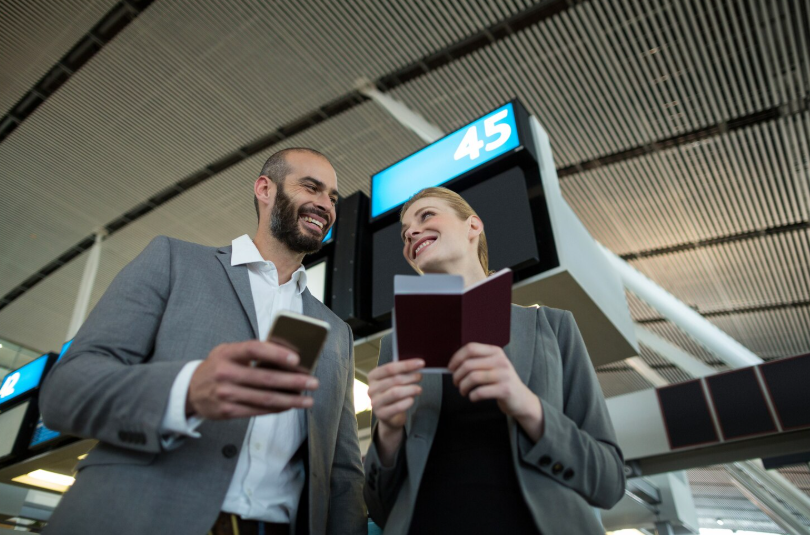The Future of Multilingual Luxury Tourism in Europe
Introduction: A New Era of Experience
Luxury travel in Europe has always been defined by provenance, craftsmanship, and impeccable service. The next chapter, however, will be written in many languages. As high-net-worth travelers seek deeper cultural connection and more personalised service, multilingual capability becomes a strategic differentiator for destinations, hotels, and travel brands. This post outlines how multilingualism — powered by human expertise and smart technology — will reshape high-end tourism in Europe, and what company directors should plan for to remain competitive and culturally responsible.
Why Multilingualism Matters for Luxury
At its core, luxury is about feeling understood and valued. Language is the most direct channel for that understanding: it enables authentic storytelling, builds trust, and elevates service gestures from transactional to relational. For a client arriving to a château in Bordeaux, a private guide who speaks their first language and can navigate cultural nuance is as important as the wine list. Multilingual offerings reduce friction, unlock local knowledge, and create emotional resonance — all essential elements of a truly memorable luxury stay.
Human Expertise + Technology: The Hybrid Model
The future is hybrid. Professional linguists, in-house multilingual concierges, and culturally fluent local partners will remain indispensable. At the same time, real-time translation tools, AI-driven localization, and voice-enabled assistants will provide scalable support for routine interactions and preliminary orientation. The highest-value experiences will combine both: human hosts for curatorial, sensitive interactions and technology for seamless logistics, such as instant interpretation during private tours or localized digital welcome packs tailored to the guest’s language and preferences.
Personalization Through Language Data
Luxury travel increasingly depends on personalization. Language preferences are a powerful signal that dovetail with behavioral data to create bespoke itineraries. When a guest’s profile includes preferred language, culinary intolerances, and cultural interests, operators can assemble speakers, specialists, and experiences that align precisely with those signals. For directors, investing in secure, privacy-compliant data systems that capture language preferences will improve conversion, loyalty, and word-of-mouth among high-value clientele.
Localization Beyond Translation
True multilingual service goes beyond literal translation. Localization adapts content, tone, and service rituals to cultural expectations. A menu translated into Mandarin is useful; a menu translated and adapted with regional taste notes, etiquette tips, and pairing suggestions is exceptional. For luxury brands, this level of detail signals respect and expertise. High-quality localization requires professional translators with cultural knowledge, plus collaboration with local chefs, artisans, and cultural custodians.
Training and Human Capital
Scaling multilingual luxury means investing in people. Multilingual staff — front-of-house, concierges, guides, and butlers — should receive not only language training but also cultural competence coaching. Cross-training programs that combine language skills with hospitality standards and local history create ambassadors who can deliver nuanced experiences. For directors, creating career paths for bilingual staff and partnering with regional language institutions can become both a talent pipeline and a competitive advantage.
Ethics, Authenticity, and Community Benefit
There is an ethical dimension to multilingual luxury: it must amplify local culture rather than commodify it. Responsible operators should prioritize hiring local speakers, compensate cultural partners fairly, and ensure tourism revenues support community preservation. Authenticity is the currency of luxury; when language services center native speakers and cultural knowledge-holders, experiences remain credible and communities benefit economically and socially.
Technology Risks and Guardrails
Technology accelerates capability but introduces risk. Automated translations can misrepresent nuance, and voice assistants may mishandle idioms or sensitive cultural content. Luxury brands must apply rigorous quality controls: human review of automated outputs, vetting of AI partners, and privacy safeguards for guest data. Directors should demand transparency from vendors about accuracy rates, data handling, and the use of human-in-the-loop processes to ensure service excellence.
Measuring Impact: KPIs That Matter
To justify investment, leaders should track meaningful KPIs: guest satisfaction segmented by language group, repeat-booking rates for guests who used multilingual services, incremental revenue from localized offers, and community impact metrics such as local employment and supplier spend. These indicators demonstrate both commercial return and social value, making the business case for sustained investment in multilingual capability.
Strategic Recommendations for Directors
For company directors steering luxury travel brands, the path forward is clear: (1) build multilingual guest profiles and integrate them into CRM systems; (2) recruit and train bilingual staff while partnering with trusted localization providers; (3) adopt technology selectively and pair it with human oversight; (4) prioritize community partnerships and fair compensation; and (5) measure outcomes with both commercial and social KPIs. These actions will position brands to offer richer, more differentiated experiences in a crowded market.
Conclusion: Language as Luxury
The future of luxury tourism in Europe will be multilingual, not for novelty, but because language is integral to meaningful, personalized travel. Combining linguistic expertise with smart technology, ethical partnerships, and rigorous measurement will turn language from a cost center into a strategic asset. For leaders who embrace this future, the reward is deeper guest loyalty, stronger brand differentiation, and travel experiences that genuinely connect visitors to the places they visit.
Stay Connected for More Travel and Lifestyle Inspiration. For more insights into travel, culture, and lifestyle tips, follow me on Instagram @salvadorordorica. If you’re seeking professional translation and localization services to enhance your global ventures, visit The Spanish Group — your trusted partner in bridging cultures worldwide.



